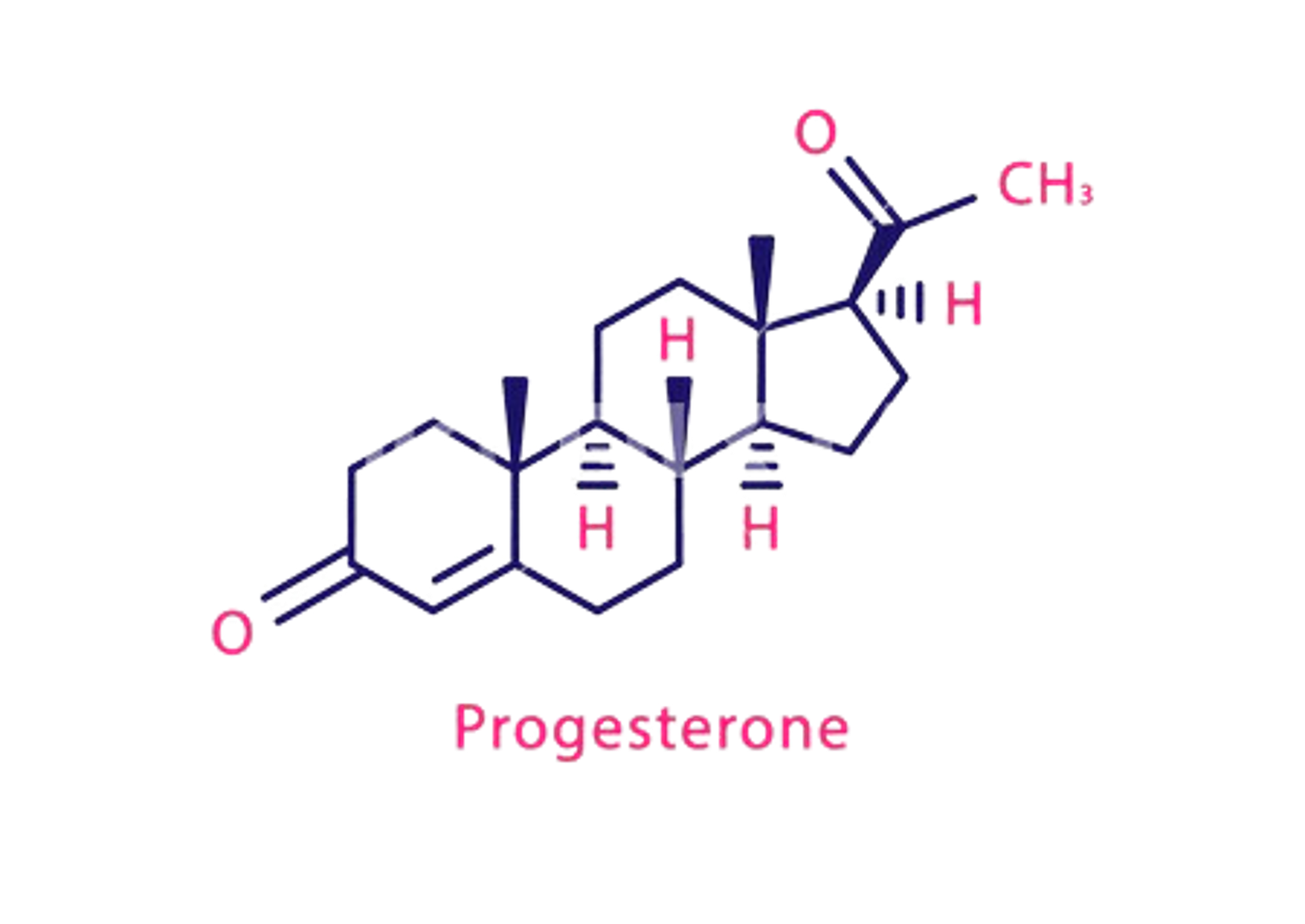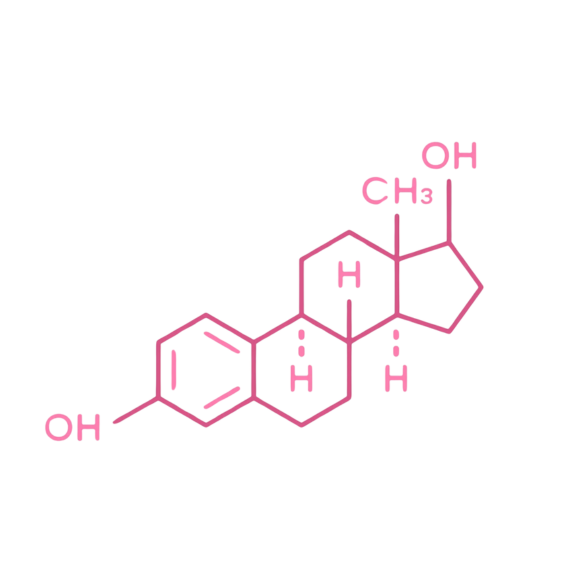What Causes the symptoms of Perimenopause?

Progesterone
During menopause, progesterone levels begin to steadily decline and usually before oestrogen levels! Which can lead to oestrogen dominance. Progesterone (P4) is produced in the ovaries, corpus luteum, placenta (during pregnancy) adrenal glands and the testes in men.

Oestrogen
Oestrogen is created in the ovaries, adrenal glands, brain, liver, fat cells, placenta (during pregnancy) the skin and bones!
There are three primary types of oestrogen in females:
Estradiol (E2):
This is the most prevalent form of oestrogen in women of reproductive age. It’s produced primarily in the ovaries, with smaller amounts also produced in the adrenal glands and in peripheral tissues.
Estradiol is responsible for the development and maintenance of female reproductive structures and secondary sexual characteristics. It also plays a crucial role in regulating the menstrual cycle and supporting pregnancy.
Estriol (E3):
Estriol is the weakest of the three main estrogens and is produced mainly during pregnancy. It is synthesized by the placenta and is present in high levels during the second and third trimesters. Estriol levels can be used as a marker of fetal well-being during pregnancy and are often measured in maternal serum or urine.
Estrone (E1):
Estrone is the least potent of the three primary estrogens and is found in postmenopausal women. After menopause, when ovarian function declines, estrone becomes the predominant oestrogen in the body. It is produced primarily in peripheral tissues, such as fat cells, and is also synthesized from androstenedione, a precursor hormone, in the adrenal glands.
Oestrogen receptors are in every cell throughout a women's body!
Consequently, as oestrogen declines during perimenopause, a variety of symptoms can be caused, impacting both physical and mental health. While some women may encounter only a few symptoms, others may face a multitude.
These symptoms can fluctuate over time, with some women noticing improvements in, for example, hot flashes and sweating, whilst simultaneously experiencing new symptoms like low mood, anxiety, and fatigue.
If you’d like to understand where you’re at with your symptoms, then check out my symptom checker quiz! It’s a great way to figure out where you’re at right now and can be a handy tool to take to a doctor’s visit too!
Symptoms of Perimenopause...
Physical, mental and emotional perimenopause symptoms:
Physical
- Irregular periods
- Heart Palpitations
- Difficulty in sleeping
- Feeling tired or lacking in energy
- Feeling dizzy or faint
- Headaches or migraines
- Tinnitus
- Dry mouth and eyes
- Sore gums
- Muscle and joint pains
- Breathing difficulties
- Needing a wee more often, or having leaks of urine
- Vaginal dryness, soreness
- More thrush, cystitis episodes
- Dry or itchy skin
- Thinning hair
- Poor sleep
- Increased clumsiness
Mental / Emotional
- Low mood
- Anxiety
- Feeling tense or nervous
- Memory problems
- Attacks of anxiety or panic
- Difficulty concentrating
- Loss of interest in most things
- Feeling unhappy or depressed
- Crying spells
- Irritability
- Mood swings
- Loss of confidence
- Reduced self-esteem
- Brain fog
- Loss of interest in sex and/or level of arousal
If right now:

- You are sick and tired of being on an emotional rollercoaster.
- You feel mortified following meetings because of brain fog or hot flushes.
- You are on the verge of throwing something at your annoying colleague.
